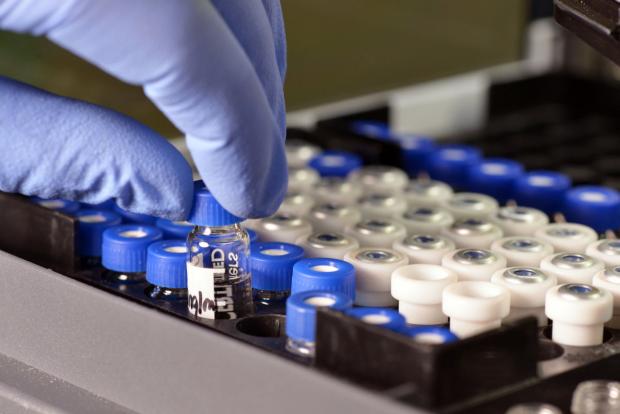National Surveillance Scheme

In the UK, the Veterinary Medicines Directorate draws up the National Surveillance Scheme sampling plan for each year using the previous year's livestock and production figures.
Northern Ireland tests a proportion of the UK total, based on its percentage contribution to the UK livestock and production figures. Animals sampled under the National Surveillance Scheme are not detained pending the outcome of laboratory testing.
Any non-compliant results are investigated by the DAERA Veterinary Service, in collaboration with the laboratory. Veterinary Service staff may trace the sources of livestock, medicines and feeding stuffs, and may take additional samples at all stages of production in order to ascertain a probable cause.
Meat Inspection Scheme
This scheme requires the rapid analysis of carcasses, detained at meat plants for a range of substances. Animals are chosen for sampling either because they are casualty/emergency slaughter animals or on the basis of suspicion.
Suspicion can be as a result of the conformation of the animal at ante mortem inspection, the presence of an injection site, the ante mortem behaviour of the animal, the flagging of the producer on the DAERA Animal and Public Health Information System (APHIS) as having had non-compliant results in the recent past, information received, etc.
Non-compliant carcasses are excluded from the food chain. DAERA will follow-up non-compliant cases on farms, taking additional samples as necessary, and will consider prosecution and further action depending on the specific circumstances of the case.
Risk Scheme
This scheme involves the analysis of a range of sample types taken from the major food producing species. Milk and eggs are also included in an annual total of some 2700 samples.
Analyses undertaken are based on current knowledge and is therefore flexible throughout the year. For example, analysis for flukicide residues in some sample types is introduced during the autumn and early winter months when risk of non-compliance is highest.
Carcasses are not routinely detained pending results, but a non-compliant result will trigger follow-up investigation by DAERA Veterinary Service. This may include follow-up sampling.
